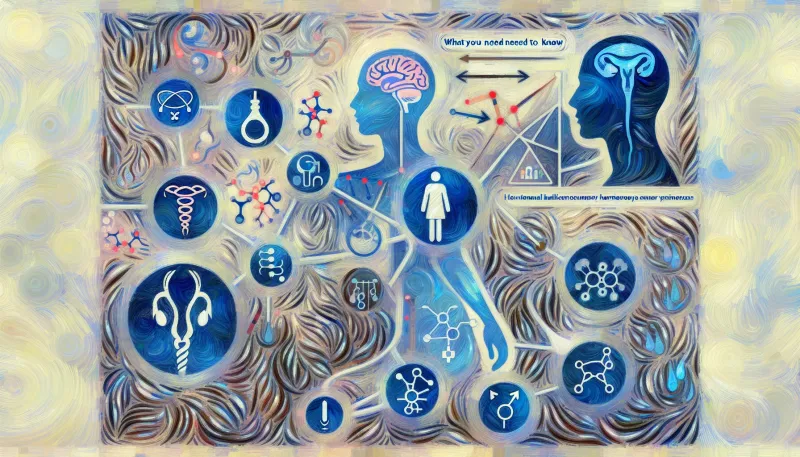How Hormonal Balance and Hair Health Are Connected: What You Need to Know

Learn how hormonal balance and hair health are connected. Discover effective solutions to maintain healthy hair through hormonal balance.
Introduction
Hair health can be a reflection of your overall well-being. However, many people are unaware of the crucial role that hormonal balance plays in maintaining healthy hair. This article will delve into the intricate connection between hormonal balance and hair health, how hormonal changes impact your hair, and what steps you can take to promote optimal hair health.
Understanding Hormones and Their Functions
Hormones are chemical messengers produced by endocrine glands and are responsible for regulating various physiological processes in the body, including growth, metabolism, and reproduction. Key hormones that influence hair health include:
Estrogen and Progesterone
Estrogen and progesterone are female sex hormones that play a significant role in hair health. High levels of estrogen are associated with hair growth and thickness, while low levels can lead to hair thinning and loss. Progesterone aids in balancing estrogen levels and supports the hair growth cycle.
Testosterone and Dihydrotestosterone (DHT)
Testosterone, a male sex hormone, and its derivative dihydrotestosterone (DHT) can significantly impact hair health. Elevated DHT levels can shrink hair follicles and shorten the hair growth cycle, leading to hair thinning and baldness, particularly in men.
Thyroid Hormones
Thyroid hormones, produced by the thyroid gland, regulate metabolism and have a direct impact on hair growth. Both hypothyroidism (underactive thyroid) and hyperthyroidism (overactive thyroid) can cause hair loss and changes in hair texture.
How Hormonal Imbalances Affect Hair Health
Hair Loss (Alopecia)
Hormonal imbalances are a leading cause of various types of hair loss, such as androgenetic alopecia (male and female pattern baldness) and telogen effluvium. Changes in hormone levels can disrupt the hair growth cycle, causing more hair to enter the shedding phase prematurely.
Hair Thinning
Fluctuations in hormonal levels, particularly during menopause or pregnancy, can result in hair thinning. During menopause, reduced estrogen levels can lead to a decrease in scalp hair density, while increased androgens can promote facial hair growth.
Hair Texture Changes
Hormonal changes can also affect hair texture. For instance, hypothyroidism can make hair dry and brittle, while hyperthyroidism can cause hair to become soft and fine.
Steps to Maintain Hormonal Balance and Promote Hair Health
Balanced Diet
Eating a diet rich in essential nutrients such as vitamins (A, C, D, E), minerals (zinc, iron), and omega-3 fatty acids can support hormonal balance and hair health. Foods like leafy greens, nuts, seeds, fish, and lean meats can be beneficial.
Regular Exercise
Staying physically active helps maintain hormonal balance by regulating insulin levels and reducing stress hormones. Aim for at least 30 minutes of moderate exercise most days of the week.
Stress Management
Chronic stress can disrupt hormonal balance and negatively impact hair health. Practices such as mindfulness, meditation, yoga, and deep breathing exercises can help manage stress levels.
Adequate Sleep
Quality sleep is vital for balanced hormones. Aim for 7-9 hours of sleep per night to support overall health, including hair health.
Medical Interventions
If you suspect a hormonal imbalance, consult a healthcare professional. Treatments may include hormone replacement therapies, medications to manage thyroid conditions, or other interventions tailored to your specific needs.
Conclusion
Understanding the connection between hormonal balance and hair health is crucial for anyone looking to maintain or improve their hair condition. Hormones play a pivotal role in hair growth, texture, and overall health. By adopting a balanced diet, exercising regularly, managing stress, and ensuring adequate sleep, you can promote hormonal balance and, in turn, support healthy hair. If you suspect hormonal imbalances, don't hesitate to seek professional medical advice to address the root cause effectively.



























